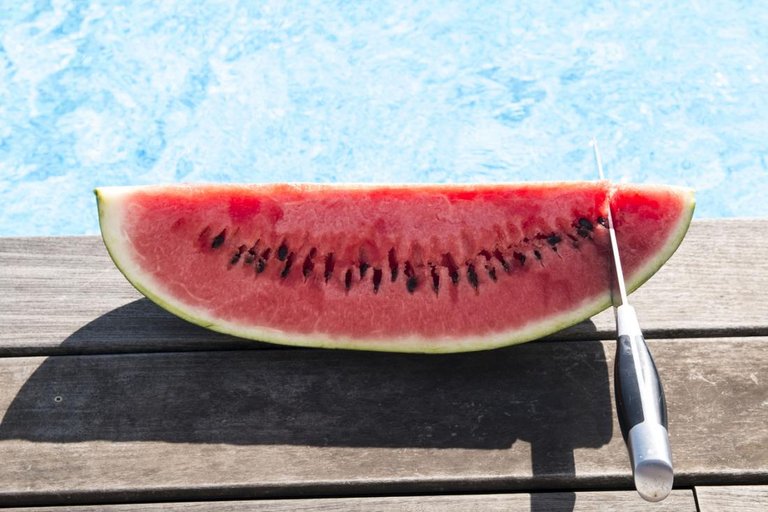Watermelon: Health benefits, nutrition, and risks
Last updated Tue 20 Jun 2017 By Megan Ware RDN LD Reviewed by Natalie Butler, RD, LD
Table of contents
Despite the popular belief that watermelon is just water and sugar, watermelon is actually a nutrient dense food. It provides high levels of vitamins, minerals, and antioxidants and just a small number of calories.
Watermelons have become synonymous with summer and picnics, and for good reason. Their refreshing quality and sweet taste help to combat the heat and provide a guilt-free, low maintenance dessert.
Along with cantaloupe and honeydew, watermelons are a member of the botanical family Cucurbitaceae. There are five common types of watermelon: seeded, seedless, mini (also known as personal), yellow, and orange.
Fast facts on watermelon:
The watermelon has been cultivated for thousands of years, with evidence stretching back to the Ancient Egyptians - who were expert cultivars.
Over 90 percent of a watermelon is water.
According to the Food and Agriculture Organisation of the United Nations (FAO), China is the top producer, with 75 million produced in 2014.
Watermelon is thought to aid conditions including asthma, cancer, and inflammation.
Benefits
slice of watermelon with a knife
Watermelon is a fruit, and has many of the associated benefits including weight loss and energy levels.
Consuming fruits and vegetables of all kinds has long been associated with a reduced risk of many lifestyle-related health conditions.
Many studies have suggested that increasing consumption of plant foods like watermelon decreases the risk of obesity and overall mortality, diabetes, and heart disease.
Other benefits of the watermelon include promoting a healthy complexion and hair, increased energy, and overall lower weight.

Asthma prevention
The risks for developing asthma are lower in people who consume a high amount of certain nutrients. One of these nutrients is vitamin C, found in many fruits and vegetables, including watermelon.
Blood pressure
A study published by the American Journal of Hypertension found that watermelon extract supplementation improved the health of the circulatory system in obese middle-aged adults with prehypertension or stage 1 hypertension.
Diets rich in lycopene - found in watermelon - may help protect against heart disease.
Cancer
As an excellent source of antioxidants, including vitamin C, watermelon can help combat the formation of free radicals known to cause cancer. Lycopene intake has been linked with a decreased risk of prostate cancer in several studies.
Digestion and regularity
Watermelon, because of its water and fiber content, helps to prevent constipation and promote regularity for a healthy digestive tract.
Hydration
Made up of 92 percent water and full of important electrolytes, watermelon is a great snack to have on hand during the hot summer months to prevent dehydration. It can also be frozen in slices for a tasty cold Popsicle-style snack.
Inflammation
Choline - found in watermelon - is a very important and versatile nutrient; it aids our bodies in sleep, muscle movement, learning, and memory. Choline also helps to maintain the structure of cellular membranes, aids in the transmission of nerve impulses, assists in the absorption of fat,
I can completely vouch for the hydration aspect. My running group always has some after our run and it makes for an awesome recovery, the small amount of sugar is also good to help muscles replenish after activity!